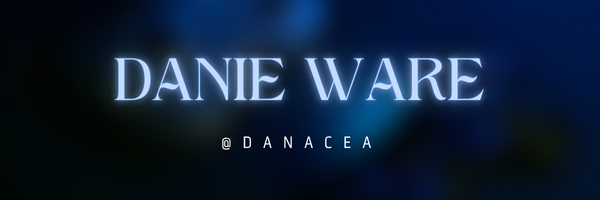Fantasy Realms of Imagination at the British Library
Or: Why Escapism Matters
Seeing everything you love in one place is not something you can describe, certainly not in the short space of a newsletter post… but, going to give it a try:
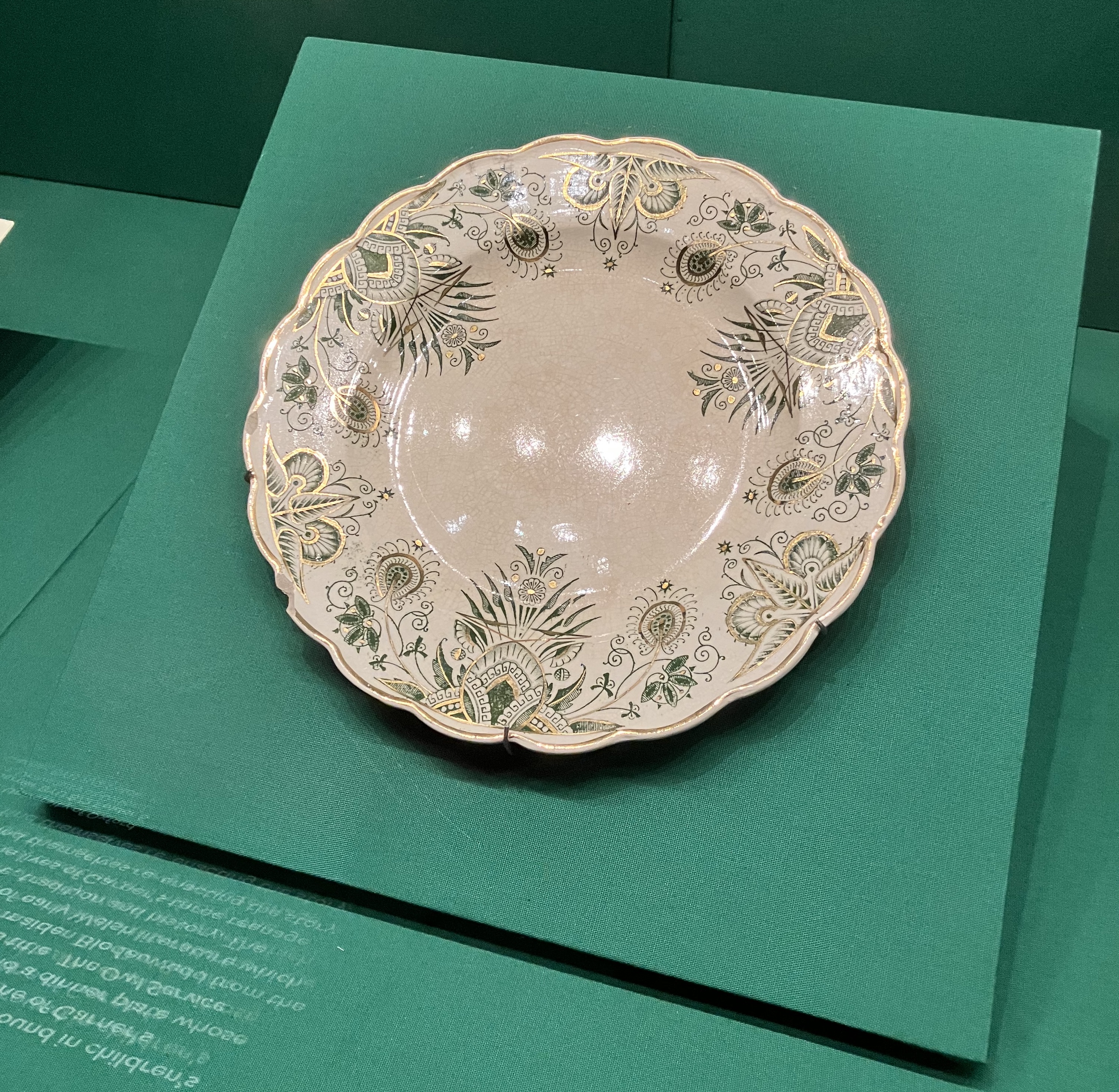
As a pre-school ankle-biter, Alice in Wonderland was my invisible playmate (don’t remember this, my Mother used to tell me). I grew up with Greek and Viking mythology, then fell in love with Earthsea and The Warlock of Firetop Mountain when I was ten. At twelve, I was chewing through Lord of the Rings, at fourteen, reading every other fantasy doorstep I could get my hands on.
I started writing when I was in sixth form, gaming while I was at Uni, and it’s never stopped. None of it, it’s never stopped.
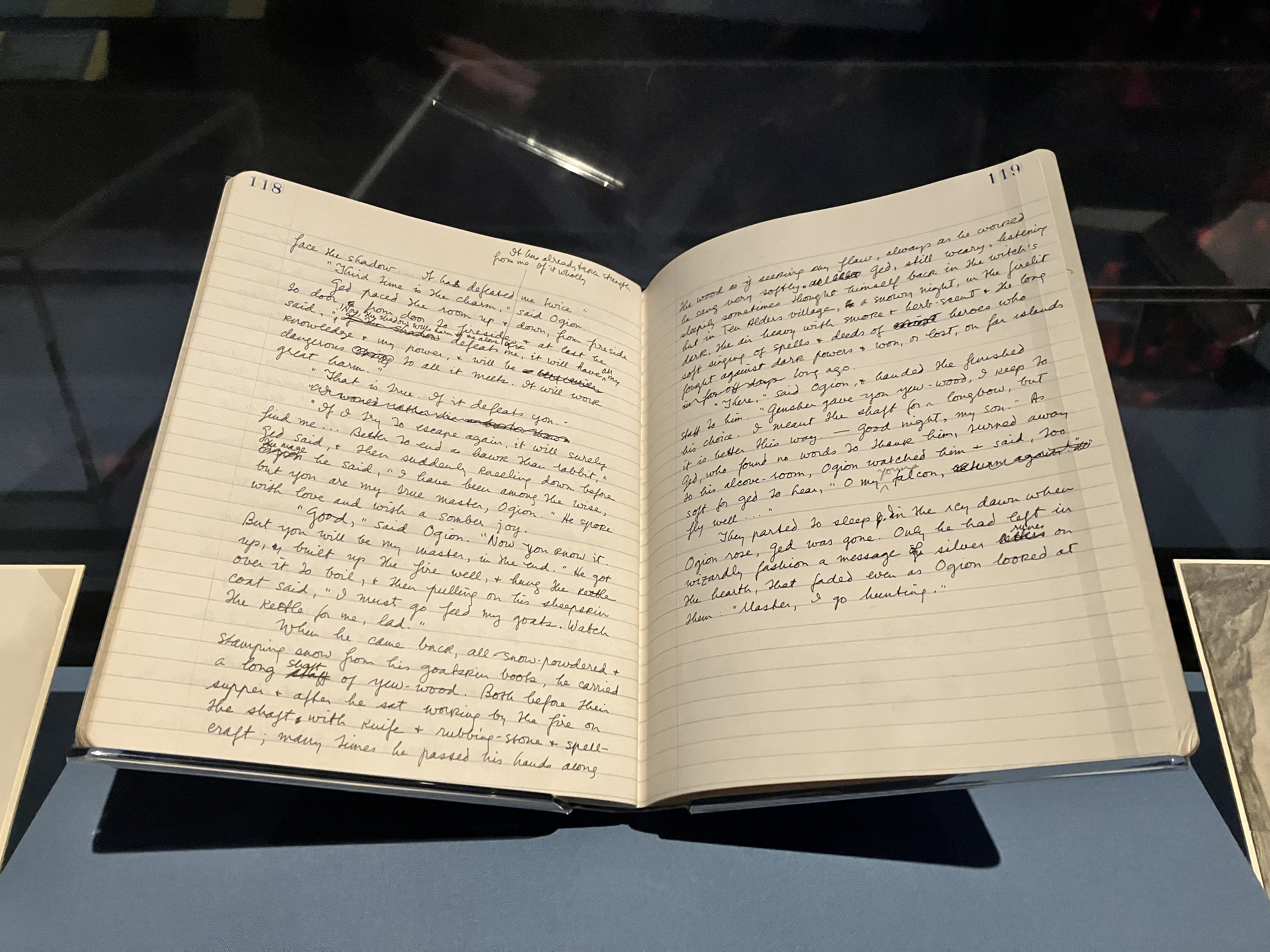
Seeing my whole life’s loves - authors’ original notebooks and sketches, C S Lewis’ maps of Narnia, the Owl Service plate (that was a bit of a moment) - celebrated like that was almost overwhelming. It folded in my education, as well, with the falling Lucifer from Paradise Lost, reminding me how much I loved the book when I studied it and how I’ve had a thing for fallen angels ever since (hence Rhan if you’ve read Ecko). More’s Utopia, which I remember from from my Degree, and Beowulf in the original ‘Hweat!’ Anglo-Saxon.
The wonders just kept coming.
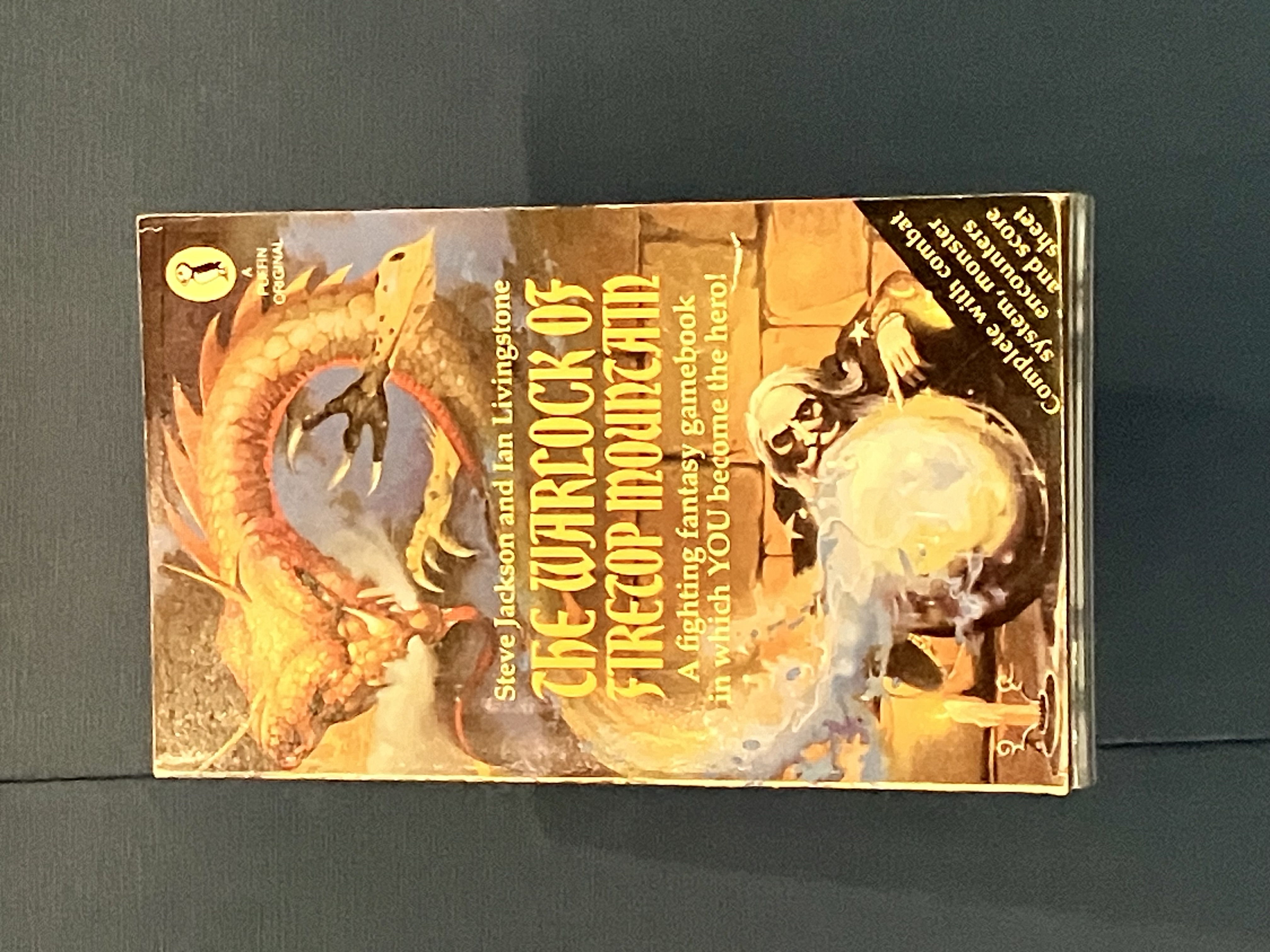
And it wasn’t only books.
There was The Sandman, pages open. The original ’red box’ D&D, and a WarHammer Fantasy battle, laid out in a case. Costumes and props, footage from Miyazaki and Buffy and Skyrim. And Manga, tying DragonBall back to the original Monkey King legend, and talking about how Ascendance of a Bookworm is ‘Isegai’, something I’ve always referred to as ‘culture shock’ fiction, in which the protagonist goes through a portal and is caught in another world.
Unsurprisingly, it’s always been my favourite thing.
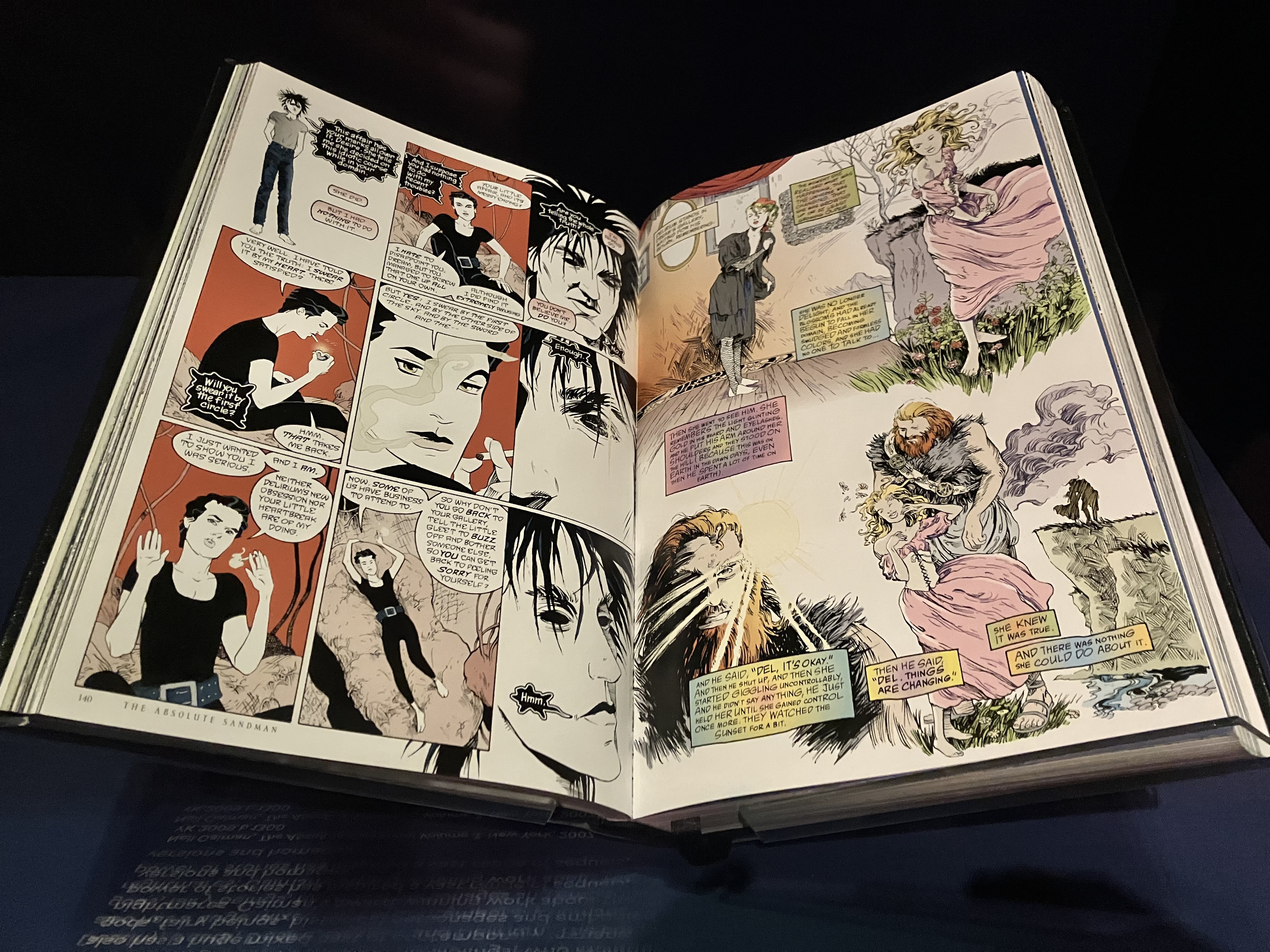
I came out of it reeling, staggered by the journey though my own past and dreams, and thinking about why fantasy is so necessary.
It ties into the darkness of our current reality, and the powerlessness we all feel – hells, we need heroes more than ever – but it’s more than that.
Fantasy isn’t just childish escapism. It teaches us empathy, encourages us to imagine ourselves in other lives, other worlds, other people’s shoes. It offers diverse representation (which may has got much better in the last few years), and it teaches us to embrace the extraordinary, giving our creative minds an outlet, and new mysteries to explore. It makes us smarter; daydreaming is proven to help us problem-solve.
As shown in the exhibition, fantasy can also be shared. I spent my twenties creating worlds and realities, maps and characters, poetry and songs. Thinking I was JRRT and trying to make languages and lexicons (some of which even survived in Ecko’s fantasy world). And those times were magical because my friends were there too, because we made this stuff between us.
When we share our fantasy, reading and writing, games and books, stories and films and online experiences, it brings us closeness and community. It helps us take on board issues that we may otherwise be unable to face, and accept the support of out friends in so doing. It fosters a belief in possibility, both alone and together.
As we grow older, there are those tell us, ever-more-sternly, to leave such foolish things behind. That only children are allowed imagination. And this (like literary snobbery), I will dispute with my dying breath. Call me foolish, if you will, tell me I’m ‘hiding’, or label me a ‘maladaptive daydreamer’, but I believe that fantasy and escapism are necessary.

Reading: With suitable serendipity (and no irony whatsoever), Carbonel by Barbara Sleigh (pub 1955), a childhood favourite that I took out of the library many, many times. Set in a London now lost, there’s an innocence to it that’s very charming. Whether it’s ‘hiding’, mind you, well… that’s another story.
Watching: The Castlevania spin-off, Nocturne, based on the Konami video game series, and set three hundred years after the original. Written by Clive Bradley (rather than Warren Ellis), the cast includes Richard Dormer and Nastassja Kinski, and it promises to be just as good as the first one. Recommend both Blood of Zeus and Blue Eye Samurai, as well.
Playing: Still resisting the urge to re-start Baldur’s Gate, despite my current MS being in its closing chapter. As soon as it’s done, though, I’m OFF.
